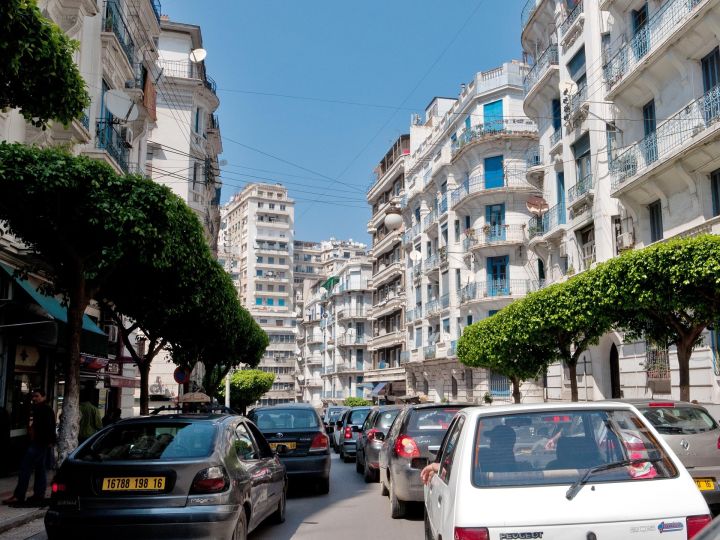
The authorities of Algeria have officially formalized the decision to accede to the Hague Convention of 5 October 1961, abolishing the requirement for legalization of foreign public documents. This was reported by La Patrie News, citing statements from the country’s political leadership.
Apostille worldwide
When moving abroad, studying or working overseas, or establishing international economic relations, there is a constant need to use documents issued in one country within the territory of another. Without going through special procedures, this is often impossible.
For a long time, the only way to use documents abroad - if there were no special bilateral agreements recognizing them - was consular legalization. This is a complex, lengthy, and costly procedure. It involves certifying the document (often after prior authentication) at the competent authority of the country of origin (usually the Ministry of Foreign Affairs or the Ministry of Justice), and then at the consulate of the country where it is to be presented. Additional complications arose because documents legalized in this way could generally be used in only one country; for other states, the procedure had to be repeated.
Therefore, in 1961, the authorities of several countries agreed within the framework of the Hague Convention to recognize documents of all participating countries once they were certified with an apostille.
An apostille is an internationally standardized form for recording the legality of a document for use in countries that recognize this type of legalization. It usually appears as a special stamp or certificate. In recent years, however, the electronic apostille (e-Apostille) has also become widespread—a special digital mark confirming the authenticity of documents issued in electronic form.
Despite the convenience of apostille legalization, many countries for various reasons did not join the Convention for many years. Among them were major nations such as China, Saudi Arabia, and Canada. However, in recent years, there has been a wave of accessions to the Hague Convention worldwide.
In 2019, the Convention entered into force for the Cooperative Republic of Guyana and the Philippines; in 2020 for Palau and Jamaica; in 2022 for Indonesia and Saudi Arabia; in 2023 for Senegal, Pakistan, and China; in 2024 for Rwanda and Canada; and in 2025 for Bangladesh.
Negotiations at various levels regarding accession to the Convention are currently being conducted by Malaysia, Egypt, Thailand, and Ghana. An active promoter of this process is Indonesia, whose authorities are encouraging their major international partners to adopt apostille legalization.
Apostille in Algeria
The authorities of the People’s Democratic Republic of Algeria have launched the official procedure for accession to the Apostille Convention. President Abdelmadjid Tebboune signed the corresponding decree.
«The publication of Presidential Decree No. 25-217, granting our country the right to accede to the Hague Convention of 5 October 1961, is a very important step,” — commented the country’s actions, Sofiane Chaib, Secretary of State at the Algerian Ministry of Foreign Affairs.
He added that the introduction of apostille legalization will simplify the procedure for certifying documents for use abroad. According to the official, the new measure is part of a broader policy to streamline administrative processes in various sectors, implemented by the country’s leadership.
Algerian media emphasize that apostille legalization will allow verification of the authenticity of signatures and seals on documents, as well as the status of the official who issued the document. Administrative documents, documents issued by judicial or governmental authorities, and notarized acts will all be eligible for certification.
Algerian authorities have been trying to curb the outflow of graduates from higher medical schools by halting the legalization of their diplomas. This decision has not yet been formalized legally, and for some time the authorities did not publicly comment on the matter. The first official to implicitly acknowledge this practice was the Minister of Higher Education, Kamel Baddari.
In response to public criticism from French-Algerian civil society regarding “legal arbitrariness,” the minister stated that diploma legalization is temporarily “suspended” while authorities seek methods to prevent the emigration of medical personnel. He noted that diploma legalization will resume once the government finds alternative solutions to address the issue.
However, the authorities have still not been able to completely solve the problem of doctors emigrating. Foreign recruiters are looking for ways to at least partially validate the authenticity of Algerian medical education documents through foreign diplomatic missions operating in the country or through Algerian consulates abroad.
The President of the National Union of Public Health Specialists of Algeria, Laïes Merabet, criticized the authorities’ actions, stating that such measures solve nothing and only create social tension. In his view, medical professionals should have the right to continue their education abroad and freely choose their country of residence.
Approximately 15,000 doctors who received their education in Algeria are currently working in France. Many others also move to the United States and the Gulf States. According to experts, they are attracted by higher salaries and greater professional opportunities.
How the issue of restricting medical professionals’ emigration will be addressed after the introduction of apostille legalization remains unclear at this time.
What is an apostille?
What is an apostille? Why do I need an apostille? How do I get an apostille? - Our video will explain everything you need to know about the apostille. If you have a document that needs to be certified with an apostille for use abroad, Schmidt and Schmidt will assist you! We provide apostille services in more than 100 countries worldwide.





